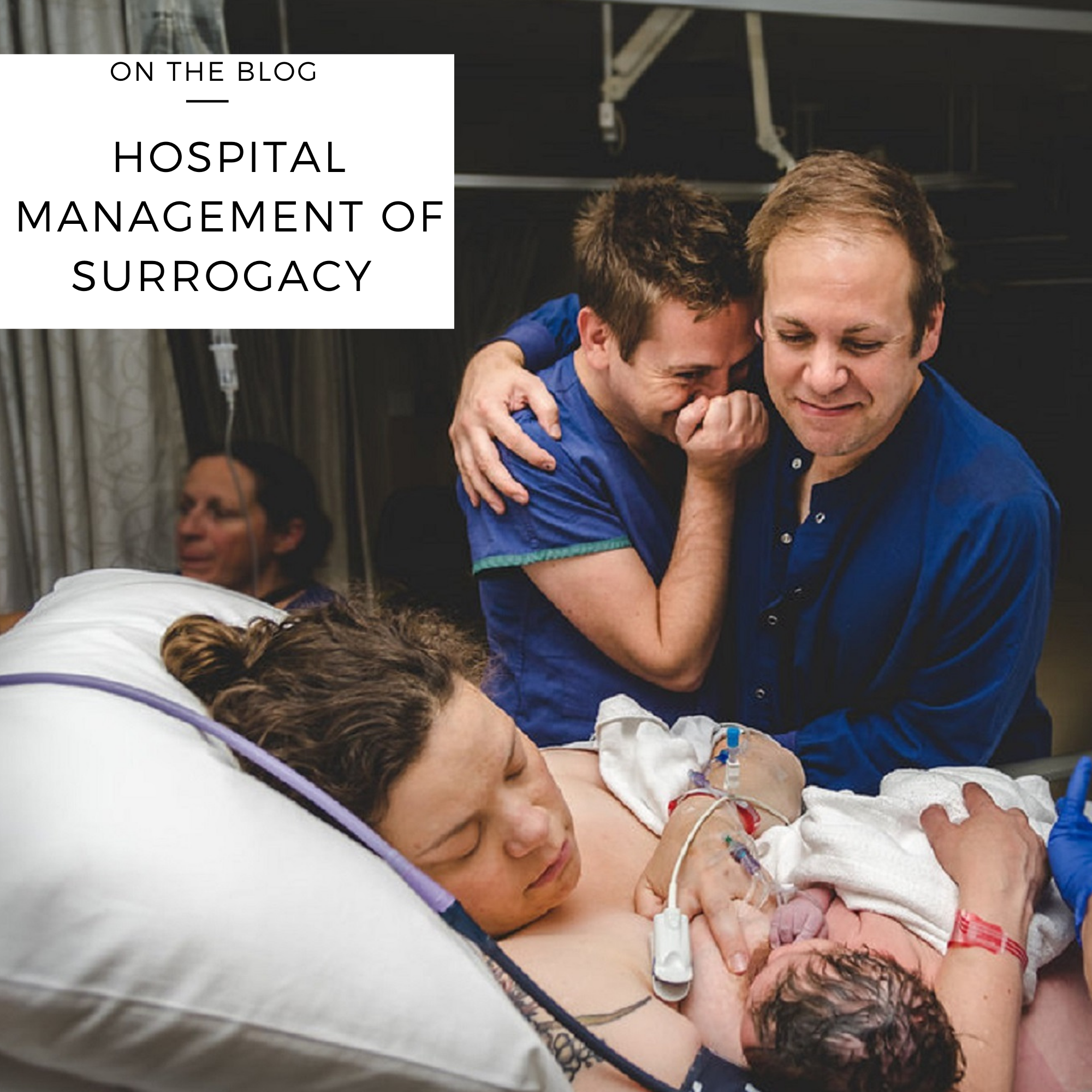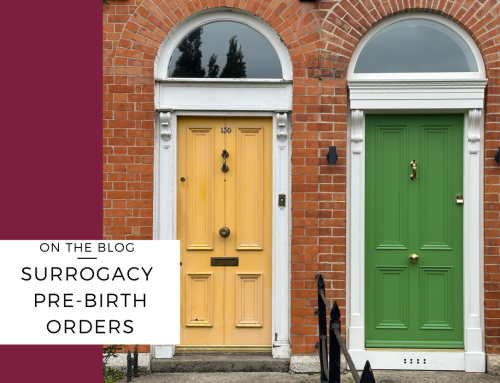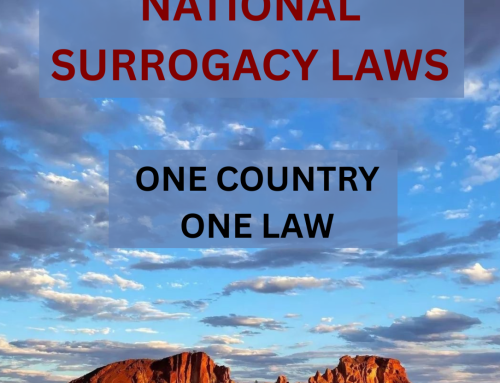Hospital surrogacy birth and pregnancy care.
There are such a low number of surrogacy births in Australia each year (only about 130-150 each year across the entire country), that it is no surprise that many hospitals will only rarely come across a surrogacy birth. Some hospital surrogacy policies can be outdated or inflexible (or non-existent), and don’t apply to a surrogacy arrangement the way the parties hoped.
For example, some hospital surrogacy birth policies will declare that only the birth mother can feed the baby, and not the intended parents. They may also refuse to allow the intended parents to remain in hospital with the baby, pressuring them to leave after visiting hours and leave the baby in the birth mother’s care.
The good news is that most hospitals are open to learning and flexible and supportive, once they understand the needs and complexities of a surrogacy birth.
To help you and the hospital, I’ve created a Surrogacy Pregnancy and Birth Care Planning Guide for surrogacy teams and their healthcare providers. This guide is the only one of its kind in Australia, written by me – someone who knows the law and the importance of getting the care for the surrogate, intended parents and the baby right.
You can also download a sample hospital policy for surrogacy, Best Practice Guidelines for Care in Surrogacy, and give to your healthcare provider.
If you are planning a surrogacy birth in a hospital, I encourage you to read about surrogacy birth planning, and also about milk and feeding a surrogacy baby.
There are a few things that are really important for a surrogacy pregnancy and birth, including that the surrogate maintains her bodily autonomy, and her privacy should be respected. Having a baby does not waive a surrogate’s rights to privacy and autonomy. Most teams will have agreements about the sharing of information and decision-making, which is great. As long as the care providers and the parties understand that she has not waived her rights to autonomy, agreements can allow for sharing information in accordance with her wishes.
Some hospitals will have their own lawyers review the agreement and advise about whether the intended parents can care for the baby and leave the hospital with the baby separately to the birth mother. Sometimes, the hospital will request a document with the birth parents’ consent to the intended parents caring for and leaving hospital with the baby. Such a document can be drafted yourself, and otherwise I can assist with drafting a document, as well as discussing the issue with the hospital staff if necessary,
If you are facing hurdles with your chosen care providers, request a meeting with the relevant staff (such as the Nurse Unit Manager, or hospital Social Worker), and get in touch if you need any assistance.
If you are new to surrogacy as an intended parent, you might like to start with this article. If you are a potential future surrogate, this article provides some information.
I’ve written a book, More Than Just a Baby: A Guide to Surrogacy for Intended Parents and Surrogates, the only guide to surrogacy in Australia.
You can find more information in the free Surrogacy Handbook, reading articles in the Blog, by listening to more episodes of the Surrogacy Podcast. You can also book in for a consult with me below, and check out the legal services I provide.
Photo credit: Bree Downes, Melbourne Doula and Birth Photographer.








